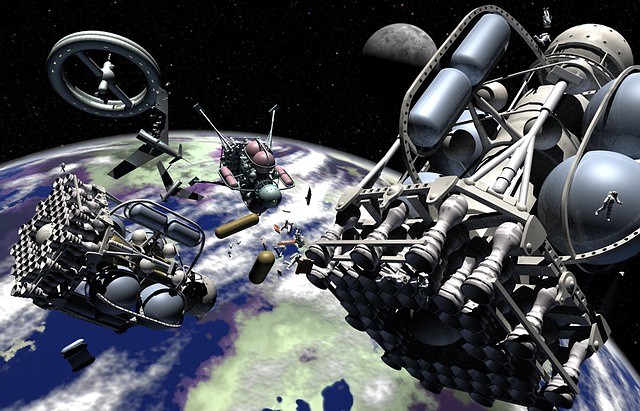
Chinese developers devised a satellite hunting AI system that is more sophisticated than any western technology in space. One report by the SCMP said that the AI was able to devise deception strategies while in a simulated space battle.
AI System Can Deceive Targets
A simulation of an AI system controlled three smaller satellites to approach and capture important targets many times. The pursued spacecraft could sense the danger and alter its course, reported the EurAsian Times.
The AI then tells the hunters to alter its course to deceive the target into a trapping move. At less than 10 meters, one of the hunters reversed and activated a capture device.
Lead scientist Dang Zhaohui, a professor of astronautics at Northwestern Polytechnical University in Xian, characterized it as stunning in a report published on April 25 in the domestic peer-reviewed journal Aerospace Shanghai.
The AI's creators claim that chasing a large target in orbit is difficult. The pursuit was previously viewed as a mathematical optimization problem, with the target assumed to be slow, dumb, and blind.
Strong nations don't want space assets to attack, so they have surveillance networks and early warning sensors to protect satellites with artificial intelligence. It is mentioned that attacking early-warning satellites is the start of a nuclear war, noted Asia Financial.
Dang and his colleagues from the Shanghai Institute of Aerospace System Engineering it only is a space directed by AI for targets and hunters, humans are excluded.
Simulating a Space War
The Chinese developers permitted satellite hunting AI to perform the pursuit and evasion game indeterminately without human involvement. After that, an AI "critic" analyzed the results of each round and decided to hand out prizes and penalties.
Read Also: Indian, Japanese Next Generation Fighters To Challenge the J-20 Mighty Dragon in the Indo-Pacific
Using more power, taking too much time, or making contact with a teammate, for example, contributed to fines for the hunters and bonuses for the target.
The first 10,000 rounds of training had both teams struggling with more mistakes leading to penalties. By 20,000, the hunters were faster while working as a group. The target satellite learned the hunters' simple tactics and learned to avoid the hunters better.
Likewise, the hunters learned counters and employed better ways to capture the target by combining concepts to catch the target. Dang added it took 220,000 rounds to train the AI, and the target was not allowed mistakes. China has been incorporating artificial intelligence into its satellite systems to be a significant space force.
China showcased an advanced artificial intelligence system to convert cheap imaging satellites into spies.
June last year, Beijing demoed its AI-enhanced satellite reconnaissance capabilities via its Beijing-3 commercial satellite that thoroughly scans about 3,800 of the San Francisco Bay in less than 42 seconds at 500 kilometers high.
By 2025, China will place a constellation of 138 Jilin-1 satellites in orbit. These satellites will have AI installed to boost their imaging capacities to monitor the US and allies' satellite killer missiles.
Nevertheless, some scientists warn that artificial intelligence has doubled the dangers of space travel. According to a Chinese paper published in the Journal of International Security Studies in May, AI will disrupt global strategic stability.
Chinese developers of the satellite hunting AI show how vital it is in the future when it comes to satellite hunting, and this capability gives China an edge over the US and its allies.
© 2025 HNGN, All rights reserved. Do not reproduce without permission.








